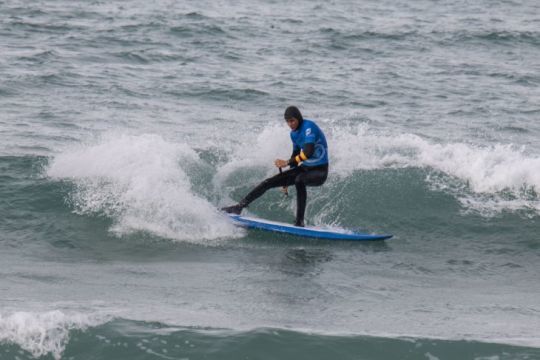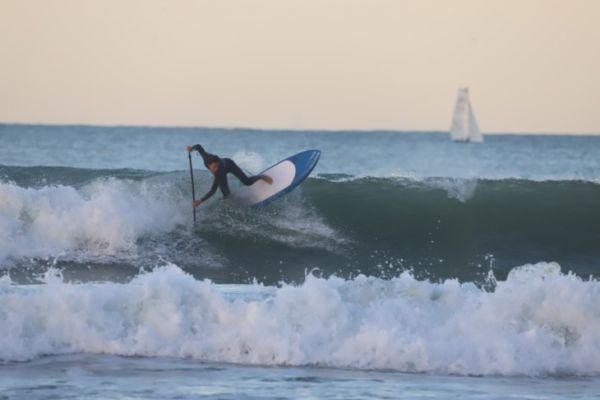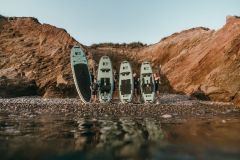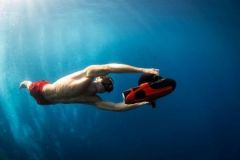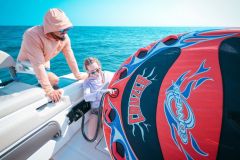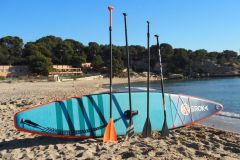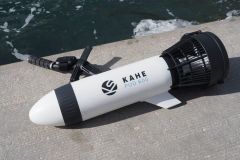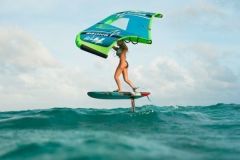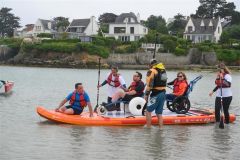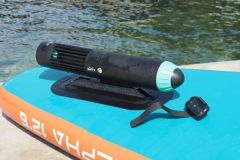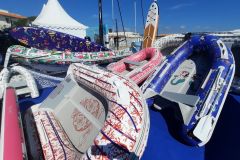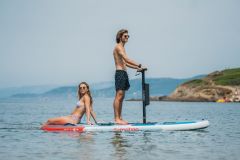SUP surfing, or stand-up paddle surfing, remains a relatively unknown board sport. At just 19 years of age, Kilian Burac has already won the title of regional champion of Brittany and climbed to 3rd place on the French national podium in the espoir category. Here, he shares his passion for this discipline.
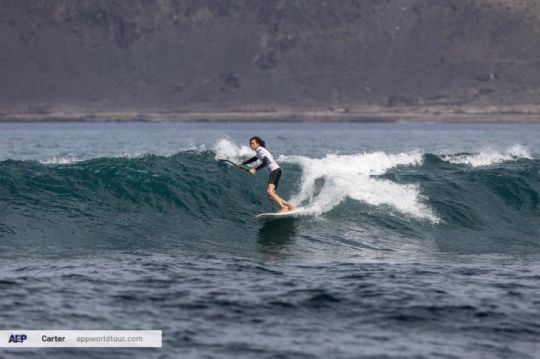
A lot of people aren't very familiar with SUP surfing. Can you explain what the sport is, where it originated and what makes it different from traditional surfing?
SUP surfing, which means Stand Up Paddle surfing "Surfing a wave with a board that's a little thicker than a conventional shortboard, using a paddle. This means you're already upright before you hit the wave, unlike conventional surfing, where you start out lying on the wave. Once in the wave, the paddle is used as a fulcrum to pivot or accentuate maneuvers. The sport originated in Hawaii in the 1960s. It took a long time to come to the fore, but in November 2009, a dedicated section was created within the French Surfing Federation.
You started competitive SUP surfing 5 years ago. Is it necessary to go through surfing to master SUP surfing, or is it possible to learn SUP surfing without any previous experience?
I don't think surfing is essential to start SUP surfing. On the other hand, I think it's very complementary, as you'll find the same trajectories as on a shortboard (a small "classic" surfboard). It's important to do shortboarding to work on the maneuvers you'll be doing in SUP surfing, accentuating them with your paddle. Personally, I did a lot of "classic" surfing to learn the basics, before getting on a SUP surfboard. It gave me the right foot placement, the right trajectories, and taught me how to read waves. The best SUP surfers on the planet are also very good shortboarders. In any case, before taking up SUP surfing, it's important to learn about the rules of priority in the water to avoid accidents with other surfers.
As champion of FinistŤre, Brittany and 3rd place in France in the U23 category, can you share your most memorable moments from these competitions? What's your next challenge?
On my return from Mayotte, I took part in the Bretagne Espoir championship for the first time, which I won. I had no idea what level to expect when I returned to mainland France. After that competition, my mind was made up: I wanted to invest myself fully in this discipline! I'd say that my first participation in the APP World Tour also had a big impact on me. It was the first time I'd taken part in an international competition. It was incredible to see the level of the world's best and to be able to compete against such high-calibre opponents. The competition really made me want to keep improving and improving, so that one day I can reach their level.
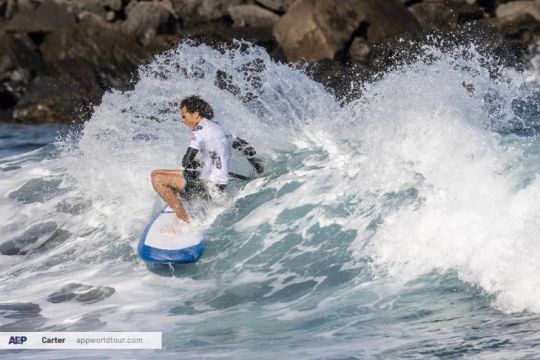
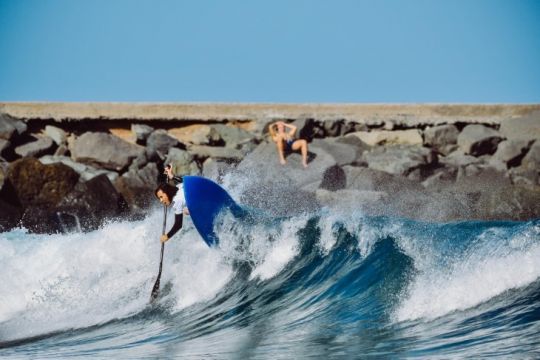
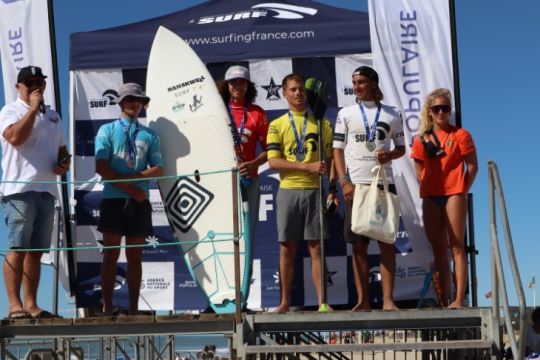
My next challenge is to get through the trials and into the main draw of the APP World Tour. Otherwise, I'd like to make the finals again at the Brittany championships, but this time in the adult Open category!
Let's talk about waves. In your opinion, what are the difficulties that can be encountered in SUP surfing depending on their nature, and how do you adapt your technique accordingly?
I'd say that the biggest difficulties you can encounter in SUP surfing are the big bars you have to pass! "Passing the bar means going offshore to catch waves that haven't yet broken. In classic surfing, you can go under the waves to pass the bar, unlike in SUP surfing where this is impossible. You have to get your board over the wave to get past them. This makes things more complicated when there are big foams to pass. You have to go between sets and paddle fast.
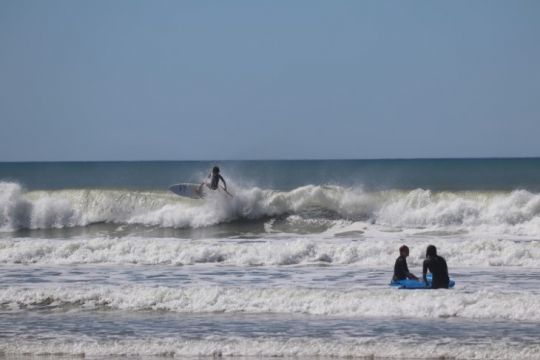
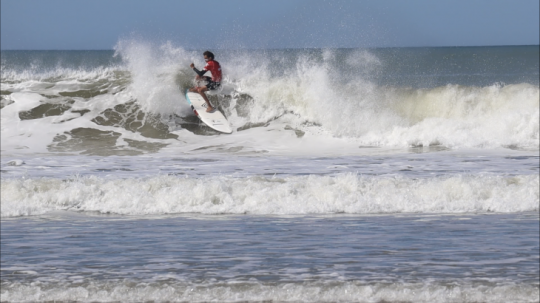
So it's much more fun to SUP surf on spots with no bars to pass ( reef , point break ).
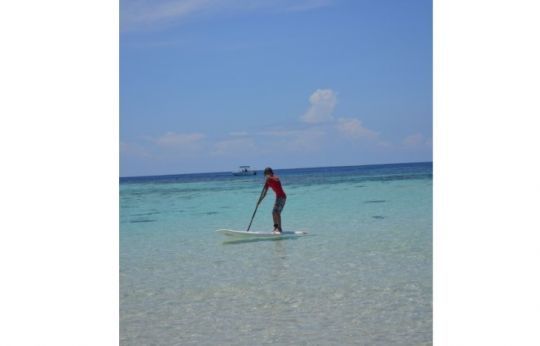
What are your favorite SUP surfing spots in France, and why do you recommend them? Have you enjoyed any sessions abroad?
My favorite SUP surfing spots in France are in Brittany. In SUP surfing, you can surf in all types of waves, whether soft, powerful, hollow... So I don't recommend any particular spot - any spot can be good for SUP surfing, but it depends on your level. Go and explore the spots near you, test it out, and you might just find the perfect spot!
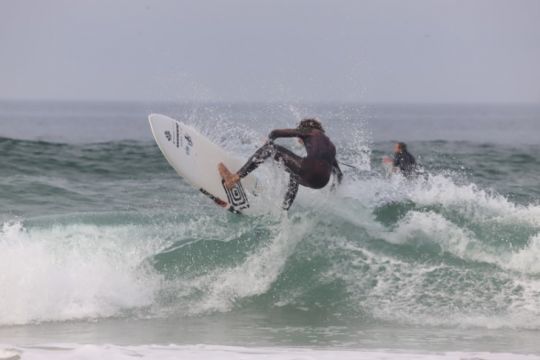
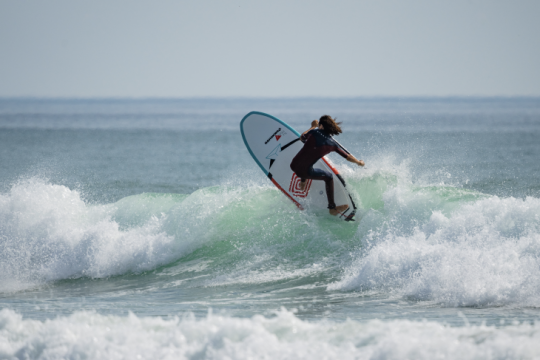
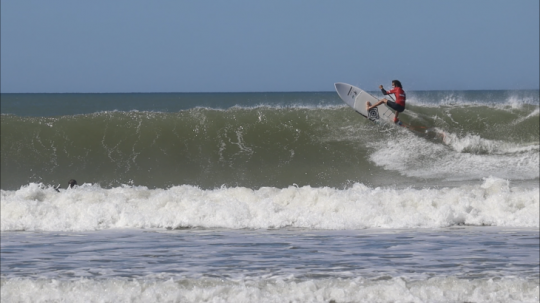
Yes, I've been lucky enough to surf abroad! I really learned to surf on the island of Mayotte. I've also surfed in Madagascar, South Africa, Australia and California! I discovered a lot of different surfing cultures and wave types. I think it's helped me improve a lot.
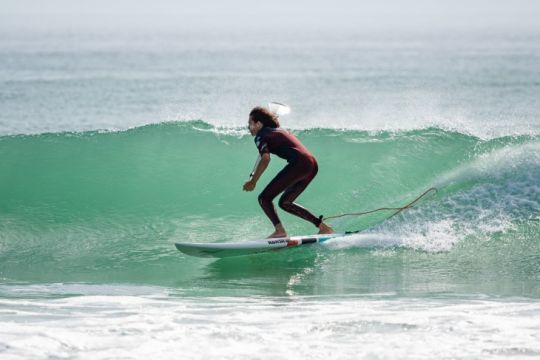
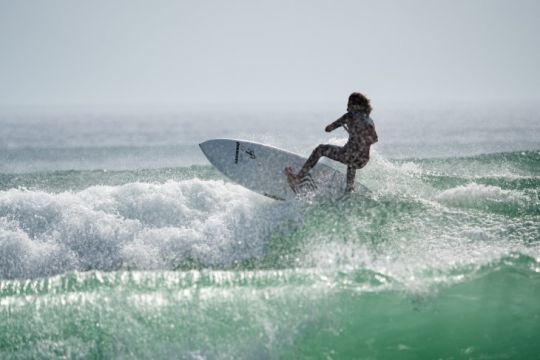
As far as equipment is concerned, what types of boards and equipment do you recommend for people who want to start SUP surfing? And for the more experienced?
To get started in SUP surfing, I'd advise you to start out with a fairly large board (over 100 liters) for stability and balance. This will also enable you to easily ride your first waves. Make sure you don't take a touring SUP, which won't be at all suited to surfing. Then, when you're comfortable, you can start doing your first turns, at which point you'll need a smaller, less bulky board to make it easier to handle. You'll find what you need in your local surf shops, and the salespeople will be able to advise you on which SUP surfboard to choose according to your weight and level. If you're from Brittany, you'll find one at Searide in Brest!
When you're making progress, the best thing to do is make a custom one. On the Crozon peninsula, there's a very good shaper who makes good SUP surfboards. You'll find him under the name "Mabe Surfboard". He'll be happy to advise you!
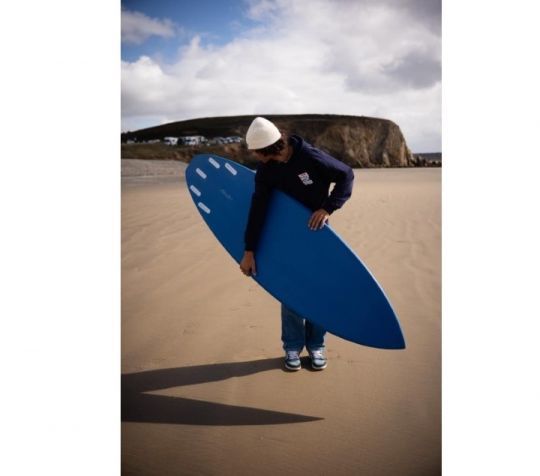
What would you say to a neophyte?
SUP surfing is accessible to everyone. It's an all-purpose sport, and you can practice it on all types of waves. Don't be afraid, just go for it!
